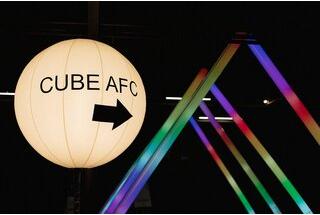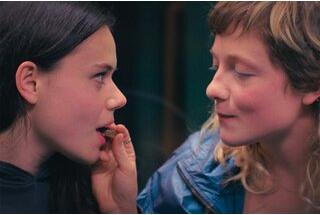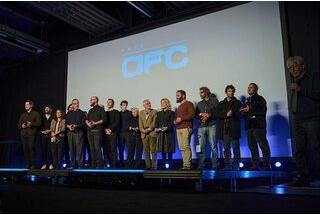Meduzot (Jellyfish)
directed by Shira Geffen and Etgar Keret, cinematography by Antoine Héberlé, AFCHe was looking for a foreign cinematographer to film the city of Tel-Aviv with what he called a “different” view. The script immediately charmed me with its whimsy tone.
Its author was Shira Geffen, an actress and stage director who directed the film with husband Etgar Keret, a talented writer.
Jellyfish are those aquatic creatures that are unwillingly shifted around by the current. A bit in the manner of Skolimovski or Iosseliani, Meduzot consists of three interwoven stories recounting the drifting of two young women and a couple in the city of Tel-Aviv. Each of these characters eventually reaches a shore, more or less smoothly.
As always with directing débuts, we had plenty of doubts as well as long and often funny discussions. Preparation lasted five weeks and the shooting was postponed several times. Indeed, many inextricable scheduling problems arose because of an intense religious festivals timeframe. Think of it as trying to shoot starting on December 23rd with Good Friday, May Day and Bank Holiday crammed in January… We just had to face the facts and cut the shooting in two : five weeks, then another week six months later.
Shira and Etgar’s requests gradually took form as we lay the cutting out on paper. It was their first film and Shira had a very precise vision of what she wanted for certain sequences. I could feel the influence of her stage work : there were often set facing, near symmetric still shots, in which the actors moving within the frame were precisely set up. In other places it suddenly felt as though everything had to be onscreen and there would be little confidence in off-screen presence. This is when shot-counter shot would come in a bit too easily.
Shira was a bit wary of camera moves, while Etgar appreciated them, something that led to many a discussion.
We quickly came to trust each other, and it took me a lot of self-retrain to let them express their vision of a shot before I exposed my own. In any case I was impressed by their ability to quickly master cinematographic tools to picture their universe.
Etgar and Shira gave me little indication regarding the light. We would look at pictures and paintings, but this was more to define the film’s general atmosphere than to research the picture’s specific texture. The ambiance is quite natural, but with an added, artificial touch to give the Tel-Aviv locations some sort of studio- or stage-like edge. I attempted to cut out fragments of the city to use them like matte paintings and make it impossible to reconstruct the city in its whole.
I had the joy of reuniting with rigorous and humorous Ehab Assal, my assistant on Paradise Now, and to get truly close with gaffer Micki Bardugo.
The effervescence characterising Tel-Aviv and the creative energy displayed by the young people there are elating. I was however very sad to hear that my former Paradise Now teammates were still captives in their own “territories” a few miles from there.
Amir Harel from Lama Films and Yaël Fogiel from Les Films du Poisson endeavour to defend sensitive and bold projects. Their presence and their work in Paris as well as in Tel-Aviv are reassuring.
(Translated from French by Mathilde Bouhon)
 En
En Fr
Fr




